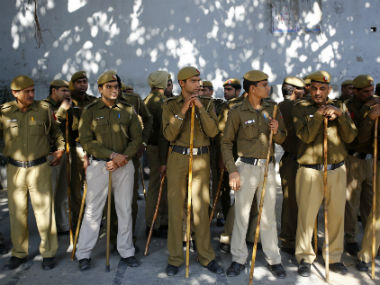Days after a
7-year-old boy was murdered by a bus conductor in a private school in Gurugram for allegedly resisting a sexual assault, another case of a
5-year-old girl being raped by a peon inside the premises of a Delhi school has sent shock waves across the country, prompting many to question our laws regarding sexual offences. Until 2012, India did not have a dedicated legislation to prosecute those accused of child abuse. All such cases were tried under the Indian Penal Code and the offences were treated as rape (Section 375), outraging the modesty of a woman (Section 354) or unnatural offences (Section 377). The POCSO Act On 22 May 2012, the Parliament passed Protection of Children Against Sexual Offences Act, now popularly known as the
POCSO Act. The Act, which does not discriminate on the basis of gender of the victim, provides for a variety of offences under which an accused can be punished. [caption id=“attachment_4028317” align=“alignleft” width=“380”] Representational image. Reuters[/caption] The Act defines a child as a person under age of 18 years (however, it does not consider the
mental age of the victim). It recognises forms of penetration other than peno-vaginal penetration and criminalises other acts of immodesty against children, too. With respect to pornography, the Act criminalises even watching or collection of pornographic content involving children. In order to provide a speedy trial, the state government, in consultation with the chief justice of the regional high court, is required to designate for each district a Court of Session to be a special court to try the offences under this Act. However, the POCSO Act has has its biggest impact through the various procedural reforms it has brought about, making the tedious process of trial significantly easier for children. Some of these procedural reforms have been explained below. Reporting of cases of child abuse Beyond stipulating details of how the incident is to be reported to the local police and the duty of the police to relay the information to the Child Welfare Committee and the Special Court within 24 hours, the Act says that the person who reports the incident “in good faith” will not be under any legal liability after the registration of the case. However, anyone in the knowledge of the crime who fails to report it to the police shall be punished as per law. The Act also warns against false complaints, saying that anyone who files a false report “solely with the intention to humiliate, extort or threaten someone, shall be punished with imprisonment, fine or with both”. If the local police feels the child against whom the offence has been committed is in need of care and protection, it is duty-bound to make immediate arrangements to give him/ her adequate protection, such as admitting the child into a shelter home or to the nearest hospital within 24 hours of the report. Recording the child’s statement The POCSO Act requires the statement of the child to be recorded at the victim’s residence, and preferably by a woman police officer. The officer who is recording the statement cannot be in uniform, and has to converse to the child in a language that is understood by him/ her. The Act says that it is the duty of the police officer involved in the investigation to ensure that at no point of time the child comes in the contact with the accused while the examination is on. It goes on to state that the child is not to see the accused later at any point of the trial in the either. The medical examination of the child has to be conducted in the presence of the child’s parents, and in case the victim is female, the examination has to be carried out by a woman doctor. When the child gives his/ her statement to the magistrate, it is compulsory for the authorities to record it on an electronic medium, and hold it in the presence of the child’s parents. Procedure for the media Media houses, in their reports on the incident, cannot disclose the identity of the child including his/ her name, address, photograph, family details, school, neighbourhood or other particulars. However, if the special court feels such a disclosure is in the interest of the victim, the media is free to report on them. Failure to adhere to these norms will lead to punishment for the publisher or owner of the media house. In another section, the Act makes it mandatory for the media to report to the police on coming across any material which is sexually exploitative of a child through the use of any medium.
The POCSO Act, which does not discriminate on the basis of gender of the victim, provides for a variety of offenses under which someone accused of child sex abuse can be punished.
Advertisement
End of Article


)




